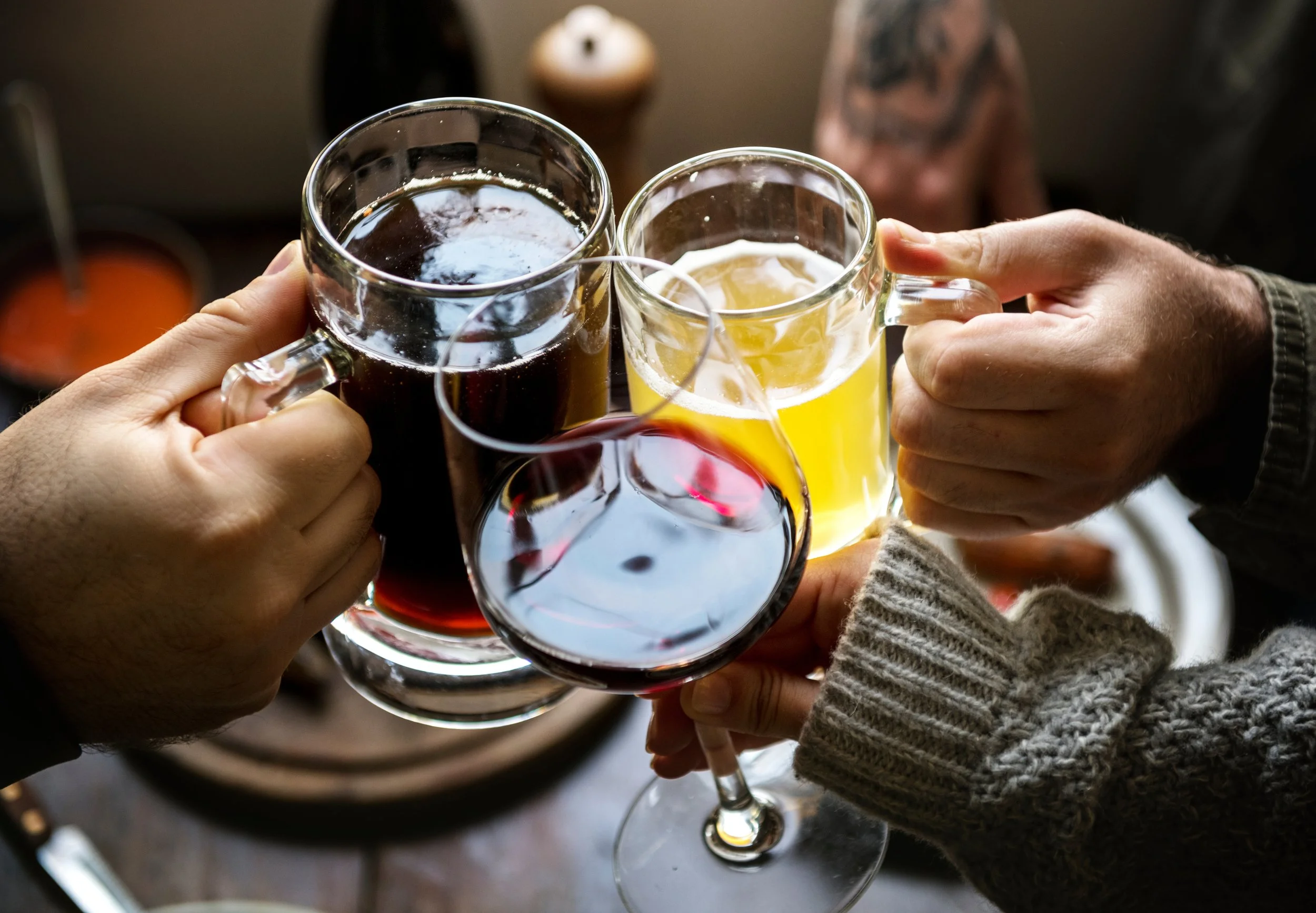If you struggle with IBS, you might already know that most gastroenterologists will recommend abstaining from alcohol use altogether. However, it can be nice to have a drink with a friend every once in a while. In this blog, we’ll discuss how alcohol affects the body and answer questions like “how does alcohol affect IBS,” “what kind of alcohol can people with IBS have,” and “what is the best drink for IBS?”
What Is Alcohol?
Also known as ethyl alcohol or ethanol, drinking alcohol is a short chain of two carbons with an alcohol (OH) group on one end. When ingested, ethanol acts mainly on brain cells with certain receptors called GABAA receptors; this interaction causes the (mostly) enjoyable experience one gets when drinking alcoholic beverages.
However, ethanol also travels through the rest of our bodies, in some cases, causing severe agitation to the digestive tract. Furthermore, quite a bit of energy is required to neutralize this substance that our bodies perceive as a toxin. Let’s take a look at how alcohol affects IBS and what you can do to minimize flare-ups if you choose to have a drink or two.
How Does Alcohol Affect IBS?
As we’ve discussed in previous blogs (like IBS Awareness Month: Exploring Common IBS Symptoms), the underlying cause of IBS is unknown. However, we do know that there is some merit to patients’ claims involving the use of probiotics and stress management techniques. Keeping these things in mind, it makes sense that alcohol might be a trigger for IBS symptoms.
Ethyl alcohol is a substance that, in high concentrations, can sterilize healthy bacteria and irritate sensitive tissues within the body, causing changes in the intestines’ ability to absorb everything. Combined with the mental effects of alcohol on the brain (which we know has its own role to play in IBS), drinking lots of alcohol isn’t the best pastime for those with IBS.
What Is the Best Drink for IBS?
You might be wondering, then, if there is any drink you can have that won’t trigger a flare-up. Keeping in mind that everyone’s body is different, let's take a look at the answer to this common question: what kind of alcohol can people with IBS have?
In general, low-concentration alcoholic beverages are best for those with IBS. Keep in mind that there are other components in most beverages, too. Also, make sure you are not drinking on an empty stomach or while dehydrated. The following beverages, when followed by a glass of water, are usually safe for IBS sufferers:
White wine
Red wine
Vodka
Gin
Bourbon
Beer
Getting Your IBS Under Control
While there's no recognized cure for IBS currently, a gastroenterologist might be able to help you find the right combination of lifestyle choices, foods, drinks, and supplements to help you live your best life. Get in touch with our team of experts at the Colorectal Clinic of Tampa Bay today!

